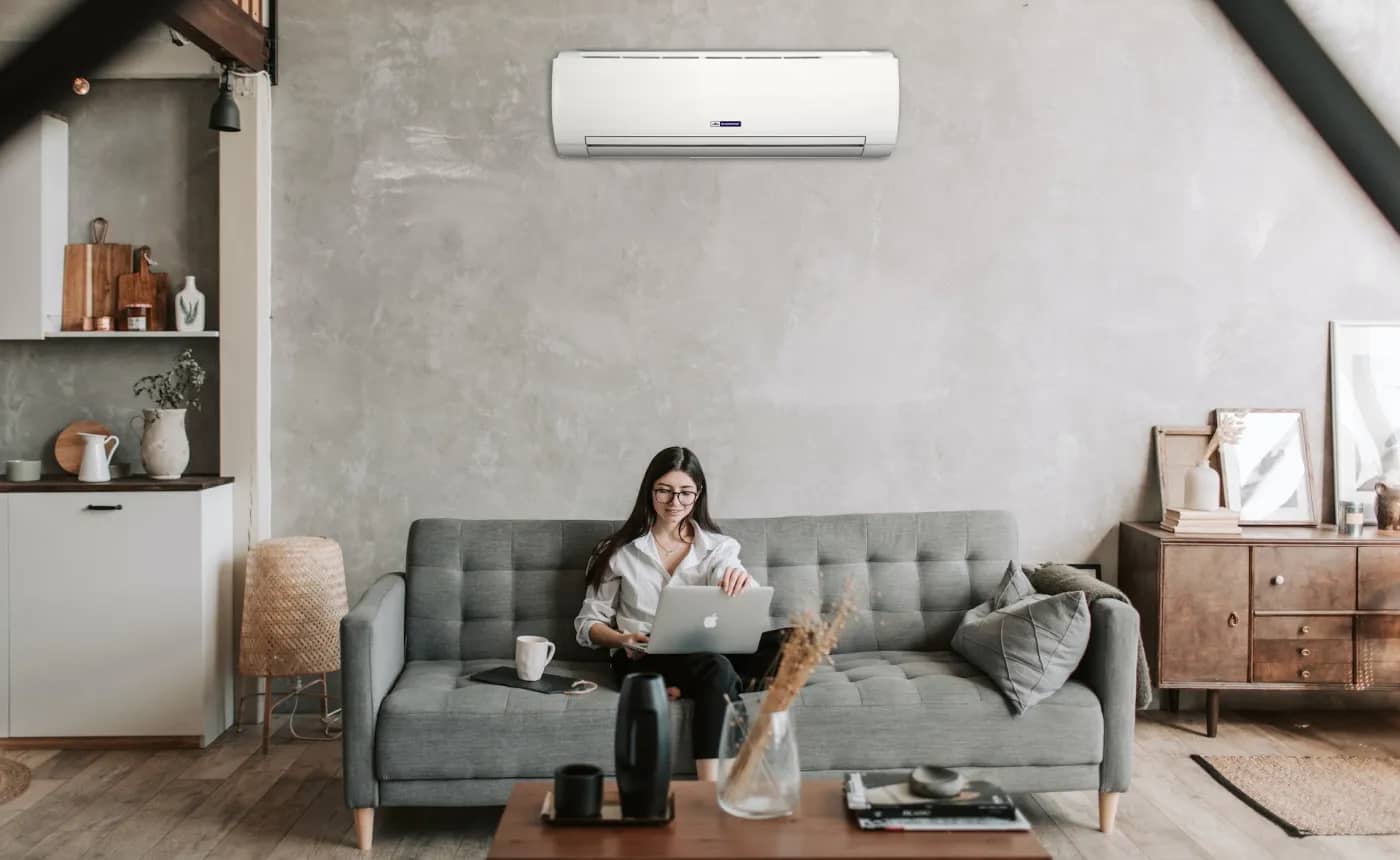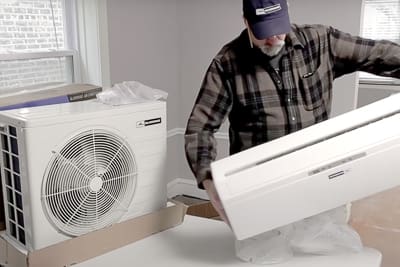If you’re here to learn about mini-split air handlers, you already know these small but mighty ductless systems provide a year-round comfort solution for many home applications—a room addition, a climate-controlled workshop or other flex space, or a bedroom that is always too hot or cold.
The first step in choosing the right mini-split is determining system capacity. We recommend a professional load calculation to accurately size your mini-split for the best system performance and longevity. A load calculation can take the form of an online calculator, such as Alpine Home Air’s Mini-Split System Selector. Our HVAC experts can also perform a professional load calculation while answering questions.
Now it’s time to consider what type of mini-split air handler(s)—the indoor portion of the system—will best suit your needs.
The Top 5 Mini-Split Air Handler Types
There are five main types of mini-split air handlers. Your choice of air handler will impact performance, aesthetics, and budget.
1 The Wall Mount
The standard high-wall-mounted air handler is the most widely available and the most popular option for several reasons. It is typically the easiest to install, the most efficient, and generally the most economical choice.
Wall-mounted air handlers come in a wide range of sizes and have various features and add-ons. They’re also found in DIY mini-split systems with pre-charged refrigerant lines.
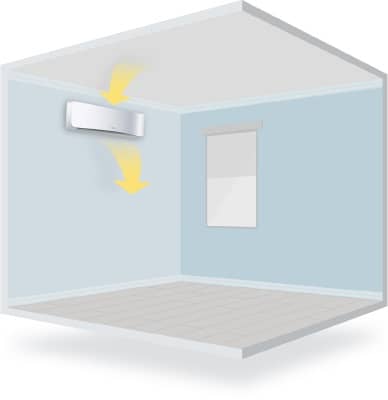
Mount these units about six feet above the floor and at least six inches below the ceiling. They are commonly, and most easily, installed on an exterior wall but can also be mounted on an interior wall.
Wall-mounted air handlers have a sleek profile and modern look. These units draw air in through vents at the top and release conditioned air directly into your space through louvers at the bottom.
2 The Ceiling Cassette
The ceiling cassette has proved to be our second most popular type of air handler despite its higher upfront cost. Its popularity is likely due to its discreet appearance, which resembles a traditional ducted vent cover or grille.
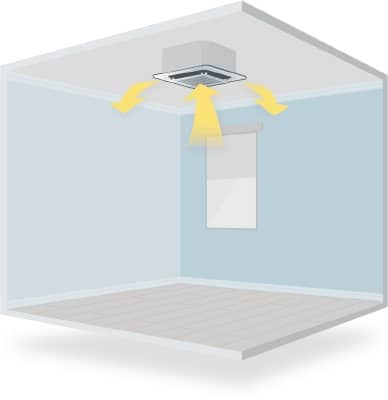
The ceiling cassette provides an ideal solution for those who either don’t have the wall space to accommodate a wall-mounted unit or want the body of the air handler hidden from view. Install one of these units in a drop ceiling or nestle it between ceiling joists. Some brands offer two different ceiling cassette styles—square and slim.
Both square and slim ceiling cassettes are high-efficiency units on par with wall mounts. If installed in the center of a room, a square ceiling cassette effectively circulates air with louvers pointing in four directions.
Slim ceiling cassettes offer greater installation flexibility than their square counterparts. These units fit easily between standard ceiling joists spaced at least 16″ apart (measured from the center of each joist).
3 The Low Wall
Low-wall air handlers mount to the wall at or just above floor level. They have a low profile (slimmer than some wall mount styles), and some customers prefer the look of low-wall units over the standard wall mount.
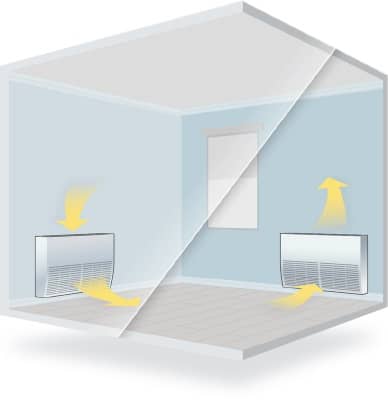
The image above shows how airflow in a low wall unit reverses direction in heating and cooling modes. In heating mode, warm air enters the room from the bottom of the unit for better heat distribution. In cooling mode, conditioned air blows from the top.
Low-wall air handlers are a great choice when a higher wall placement is not an option, such as when the ceiling height is lower than 7½ feet. A low-wall unit could be the best option for an A-frame house, a finished attic, or a living area above the garage. Discreet placement under windows is also a popular installation spot.
4 The Wall/Ceiling or Floor/Ceiling
Like the low-wall style, floor/ceiling (or wall/ceiling) air handlers can mount to the wall at or near floor level. This makes them another good option for short-wall applications. However, wall/ceiling units are more versatile because they can be alternately suspended from the ceiling horizontally.
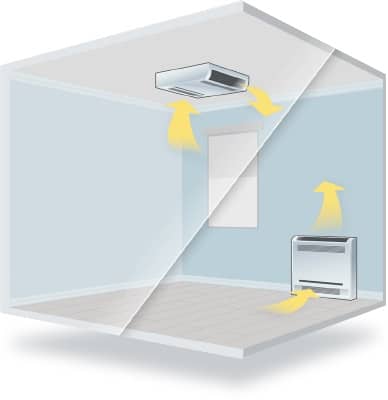
Floor/ceiling units are a good choice for those wanting to free up floor space or those with no wall space to spare.
Note that, unlike the ceiling cassette, the body of the wall/ceiling air handler will hang down approximately 9 inches from the ceiling, making it visible in the space. When aesthetics is not a primary concern, the tradeoff is a lower price on these units compared to the ceiling cassette.
5 The Concealed Duct
The last type of air handler for your ductless mini-split system is the concealed duct unit. But wait a minute–a ducted, ductless mini-split? You heard us right. The concealed or hidden duct mini-split is an overlooked style with several advantages. But first, let’s take a look at how these units work.
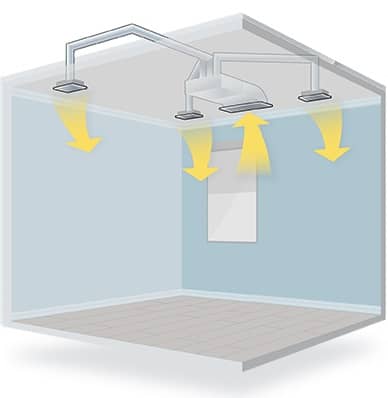
Install a concealed duct air handler above the ceiling, in an attic; below the floor, in a basement or crawl space; or behind a soffit. As such, they provide maximum flexibility for challenging applications. Attach flexible ducting, and the unit can heat and cool multiple rooms and evenly distribute air within the home.
Those with more than one space to heat or cool can save money with a concealed duct system. Because it utilizes just one air handler, it will cost less than a multi-zone system with two or three air handlers.
Lastly, a concealed duct system is the most hidden of all air handler types; you won’t see it in your space. The only visible part of the system is the air vent covers (grilles), which resemble the size and type found in traditional ducted HVAC systems.
Have Questions? We Can Help!
We hope this article has clarified your options when choosing mini-split air handlers for your system. For more information or questions about your project, help is at your fingertips. Call, email, or LiveChat with an HVAC expert at Alpine today!
